Tunisians are growing angry at the government for its role in the intense forced deportation of Tunisian migrants with no permission to be in Italy and other countries. Experts warn Tunisia’s migrant policy could face social and political repercussions.
Over the past few years, Wessam has been chasing only one dream and every day, he hopes to rub his eyes and wake from the "nightmare" in which he finds himself. His dream is to return to Italy after he was deported back to his home country Tunisia.
But, since this is just a dream, Wessam must cope with the tough reality of living back in his home district, El Kabaria, a working-class area in the capital, Tunis, which he first left 18 years ago.
Wessam is 37 and he left Tunisia for the first time in 2009, roughly a year before the spiraling anti-government protests across Tunisia eventually ousted President Zine El Abidine Ben Ali and triggered the "Arab Spring" revolutions.
Despite living in Italy for a long time and having a daughter with his Italian girlfriend, he was unable to obtain permanent legal residency in the southern European country.
During his years-long stay in Italy, Wessam worked a variety of unstable and casual jobs, in restaurants and as an electrician, his former job in Tunisia. Worse still, he was detained many times. He eventually ended up being transferred to a detention and deportation center in Trapani, on the Italian island of Sicily, where he stayed for two months before being deported to Tunisia.
"Death would be infinitely more merciful," Wissam told DW Arabic in a trembling voice. "My mother still doesn't know the genuine reason behind my return to Tunisia. Since I returned, I have been keeping myself in my room. To escape from my family’s questions, I have to leave and live away in my sister's neighborhood of Fouchana."
Increase in deportations from Italy
Wissam is not the only one experiencing this kind of situation
His dilemma has been echoed by hundreds of Tunisians who have been deported from Italy in increasing numbers since early 2025.
Boarding weekly flights, the Tunisians have been deported from Italian airports and flown in to Tabarka Airport in the northwest and to Enfidha Airport near the seaside cities of Sousse and Hammamet.
The numbers of deportations from Italy and other EU countries began to increase in 2023 after the EU and Tunisia signed a "strategic partnership" deal that included cracking down on human traffickers and tightening borders.
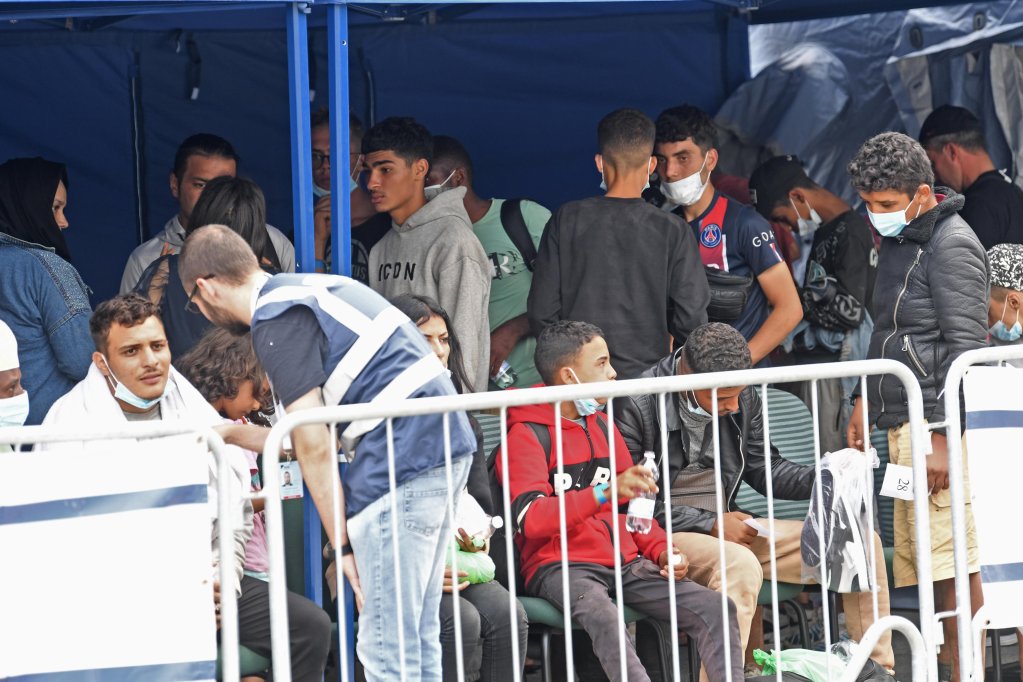
The pact has caused uproar in Tunisia and many are becoming angry at the effects their government's agreements are having on their own chances to migrate.
Undocumented Tunisian migrants grapple with anger and fear and have begun sharing messages and footage on social media sites in which they are calling on Tunisian President Kais Saied to halt the migrant returns and deportation campaigns and withdraw from the deal.
Strategic partnership?
In April, Tunisian Foreign Minister Mohamed Ali Nafti hailed the shared cultural and human heritage between his country and Italy.
But while the Tunisian minister was busy inaugurating the congress of the Confederation of Italians in the World hosted by the Tunisian authorities in Tunis, Tunisian migrants without the correct papers to remain in Italy were being forcibly deported from Italy.
These migrant transfers are causing real unrest in Tunisia.
According to data from the Italian Ministry of Interior, Rome deported 470 Tunisians from Italian airports to Tabarka Airport in the first quarter of this year. In March alone, five flights were operated, with roughly 30-40 Tunisians deported per flight.
And these deportation flights are not just arriving from Italy.
German Bundestag (Parliament) data shows Germany deported 42 Tunisians on two flights in January and February 2025. It also shows the average number of deportations from Germany per month ranges between 20 and 30. The German Press Agency dpa said German authorities deported 1,783 Tunisian migrants on 74 flights since 2018, including 293 Tunisians last year.
Are there 'undisclosed provisions' in the pact?
These migrant transfers are stirring up much controversy over what many in Tunisia believe are a series of so-called "undisclosed provisions" of the EU-Tunisia pact. Facing these claims, President Kais Saied denied signing any agreement which allows for the deportation of Tunisians along with undocumented migrants from other countries. The Tunisian leader stressed that his government had not signed any agreements for deporting Tunisians from Europe. Instead, he referred to two agreements signed by the Tunisian government in 2008 and 2011, before he came to power in 2019.
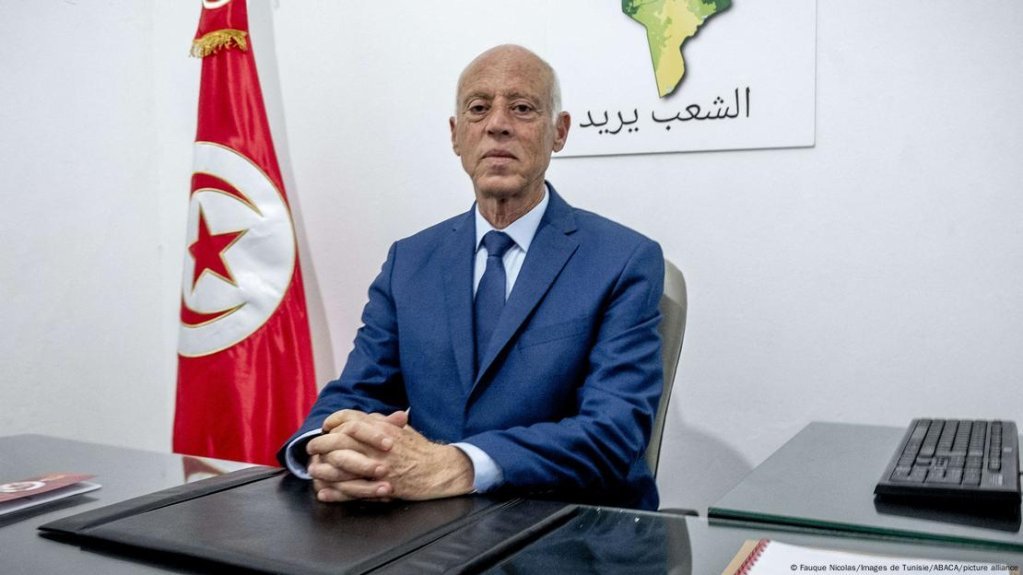
However, the Tunisian Forum for Economic and Social Rights (FTDES), an independent NGO that monitors human rights and migration in Tunisia, states that the Tunisian authorities "do not publish any data on deportations, their number, or the number of deportees." It also noted that "those who are forcibly deported have not benefited from any re-integration programs in Tunisia." Forum member Ramadan Ben Omar called on the authorities to "reveal to the public the content of the undisclosed cooperation" with the EU and publish the actual figures for the number of deportees from Italy, France, and Germany in particular.
When it was signed, Tunisia's deal with the EU came about after weeks of talks and Europe's pledge of major aid to Tunisia amounting to 1 billion euros (around 1.12 billion dollars) to help its battered economy, rescue state finances, and deal with a migration crisis. Most funds are contingent on economic reforms, according to the news agency Reuters. But human rights groups say the government has not provided sufficient data regarding the migrant transfers that many Tunisians can see are happening.
Streets fill with anger
Away from the debate over the deal conditions, Tunisians' anger over deportations may quickly begin to snowball as experts warn of social and political repercussions.
Independent migration expert and former lawmaker Majdi Karbai was one of the experts who warned the government against pressing ahead with migrant transfers.
The Italy-based expert told DW Arabic, "If authorities keep up their current deportation policy, that will further erode the trust (of Tunisians) in their state institutions and weaken the popular legitimacy of the government. This will coincide with increasing levels of dissatisfaction among young people."
Karba added many are accusing "the political system of complicity with Europe in deportations, while ignoring any potential local alternatives (for the deportees). This harms the legitimacy of security bodies and presents the government as 'Europe's policeman' by repressing migrants."
"Tunisian migrants have realized that they are paying the price for the policies of Tunisia, even though they left for the sake of a better life," he continued.
Comparison to EU-Turkey deal
Human rights activist Achraf Aouadi believes there is a huge difference between the EU deal signed with Tunisia and one signed in 2016 with Turkey.
Aouadi is the head of "I Watch," which is one of the most prominent Tunisian non-governmental organizations. On its website, the organization states it is seeking to "enhance transparency and fight corruption."
Aouadi said unlike the pact with Tunisia, the EU-Turkey deal does not stipulate "non-retroactive effect," adding this term means that Turkish migrants who entered the EU before the signing but did not have a regular status would not be deported.
'Targeted in Italy'
Wessam, one of the Tunisian migrants deported from Italy, is still angry at the current deportation campaign.
He told DW Arabic, "The situation (for us in Italy) was calm, but now it has turned turbulent since President Saied passed the memorandum with the Europeans. Our situation has changed. We are being targeted everywhere in Italy."
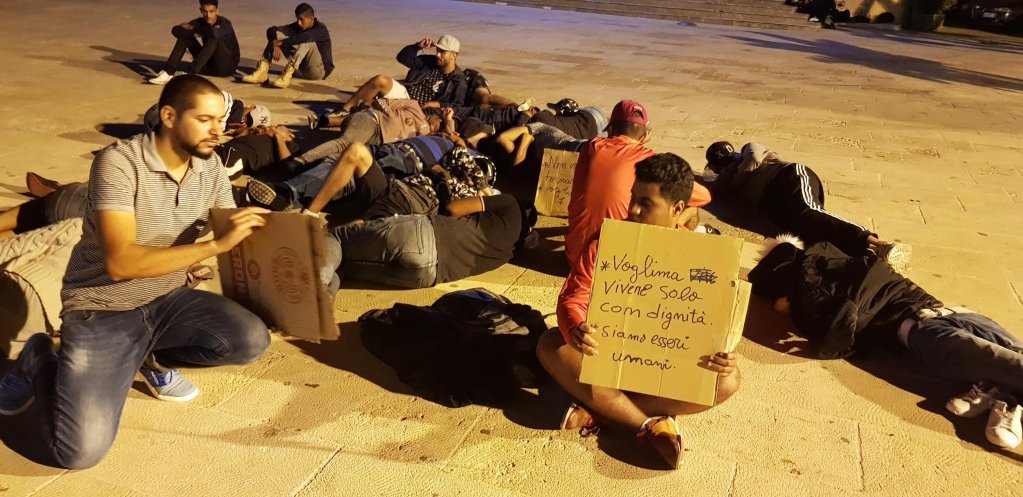
Despite the current policies, Wessam is still determined to return to Italy, adding he sees no other option.
He said, "The situation in Tunisia is worse than it was under Ben Ali's rule. Now, I want to fill my eyes with my mother, and I want to stay beside her as much as I can, because I know one day I will leave."
Karim, a Tunisian youth living in the Jebel Ahmar neighborhood in the capital, shares the same goal. He told DW Arabic, "I want to leave despite my previous two attempts to migrate by sea to Italy in 2023 being aborted."
Karim, who has a diploma in welding, says he strongly believes his chances of finding a job paying a higher salary for the skills he has would be higher if he migrated to Europe.
So far, neither Wissam nor Karim have plans for returning to Italy, given the EU's strict restrictions and the intense monitoring being carried out by the Tunisian coast guard.
Questioning presidential power
President Kais always says his rule is based on the will of the people, rolling out his "People Want" slogan repeatedly.
However, many migrants who have been deported from Italy and other European countries say they do not want to return home and are beginning to wonder whether they really want him in power going into the future at all.
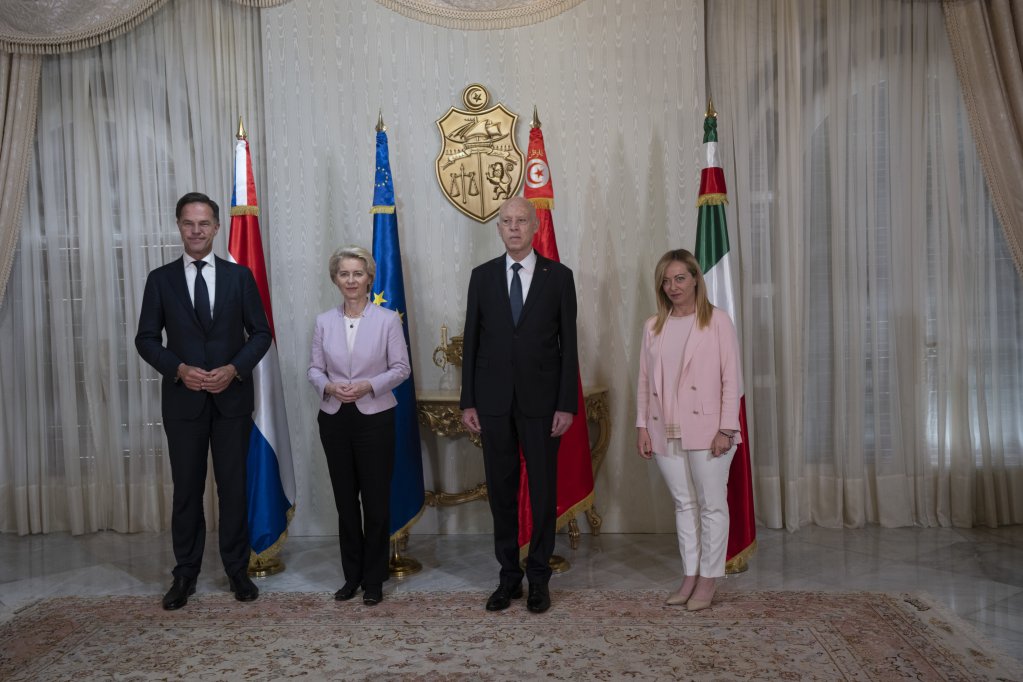
Experts argue forced deportations to Tunisia put Kais and his regime in an embarrassing situation.
In a viral clip on social media, a Tunisian migrant says, "I have a photo from the day you (Kais) were elected. In your speech, you asked us to keep our heads high everywhere, but today the opposite is happening to us in Italy, France, and Germany."
Many Tunisian citizens are starting to see the EU deal as only providing advantages to Europe, and not to them.
They say the EU, with this deal, has succeeded in preventing the departure of migrants from the Tunisian coast by more than 60 percent in 2024 compared to the previous year, according to Italian government data.
Social stigma attached to returnees
Italy-based Majdi Karbai says he believes that deportations entail significant social risks, including the social stigma attached to the returning migrants, who some consider as "failures or criminals."
He told DW Arabic those who are deported are suffering from psychological distress due to the tragic conditions of detention and deportation: "They see their life dream crumble before their eyes in the blink of an eye," he said.
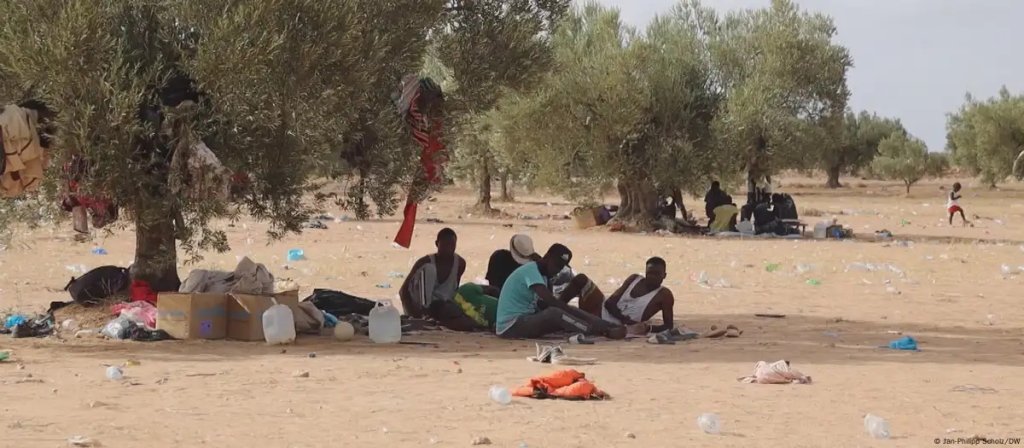
And the risks may not stop there, according to Karbai. He said the consequences of deportation may also affect poor families who previously lived off remittances from their migrant siblings, who suddenly find themselves with no income.
"They may later fall into a spiral of debt due to borrowing money to pay for embarking on their migration journeys to Europe in the first place," he argued.
Repercussions
In a brief study published on the non-government "Legal Agenda" website, analyst Khaled Tababi explains how the repercussions of the migration policy adopted by Kais Saied with European funding have cast a shadow over security, trade, and borders in Tunisia.
He said increased border control has "dire consequences for both formal and informal trade between Tunisia and neighboring Algeria and Libya."
He said the EU's border control policy has a huge impact on the Tunisian fishing sector and trade, adding growing maritime and border patrols "sometimes prevent many fishermen—particularly coastal fishermen—from sailing long distances where they can fish much more."
"This is because European policy criminalizes them and considers them accomplices with facilitating irregular migration journeys," Tababi said.
Activist Majdi Karbai has warned against the European and Tunisian policies which appear to be based on the idea that migration is a 'security threat' rather than a 'result of failed development plans.'
"This way of thinking will deepen the crisis rather than resolve it," he argued, adding the bottom line is that we are in a vicious cycle that feeds the crisis still more.
"Forced deportation does not resolve the migration crisis; rather, it exacerbates it by making deportees much poorer, pushing them to re-migrate. All this will undermine social stability and could lead to protests in the future."
This report was translated and adapted from Arabic by Mohamed Farhan and edited in English by Emma Wallis
Author: Tarek Guizani in Tunisia
First published: April 14, 2025 in Arabic on InfoMigrants Arabic
Copyright DW - All rights reserved
DW is not responsible for the content of external websites
Source: dw.com
